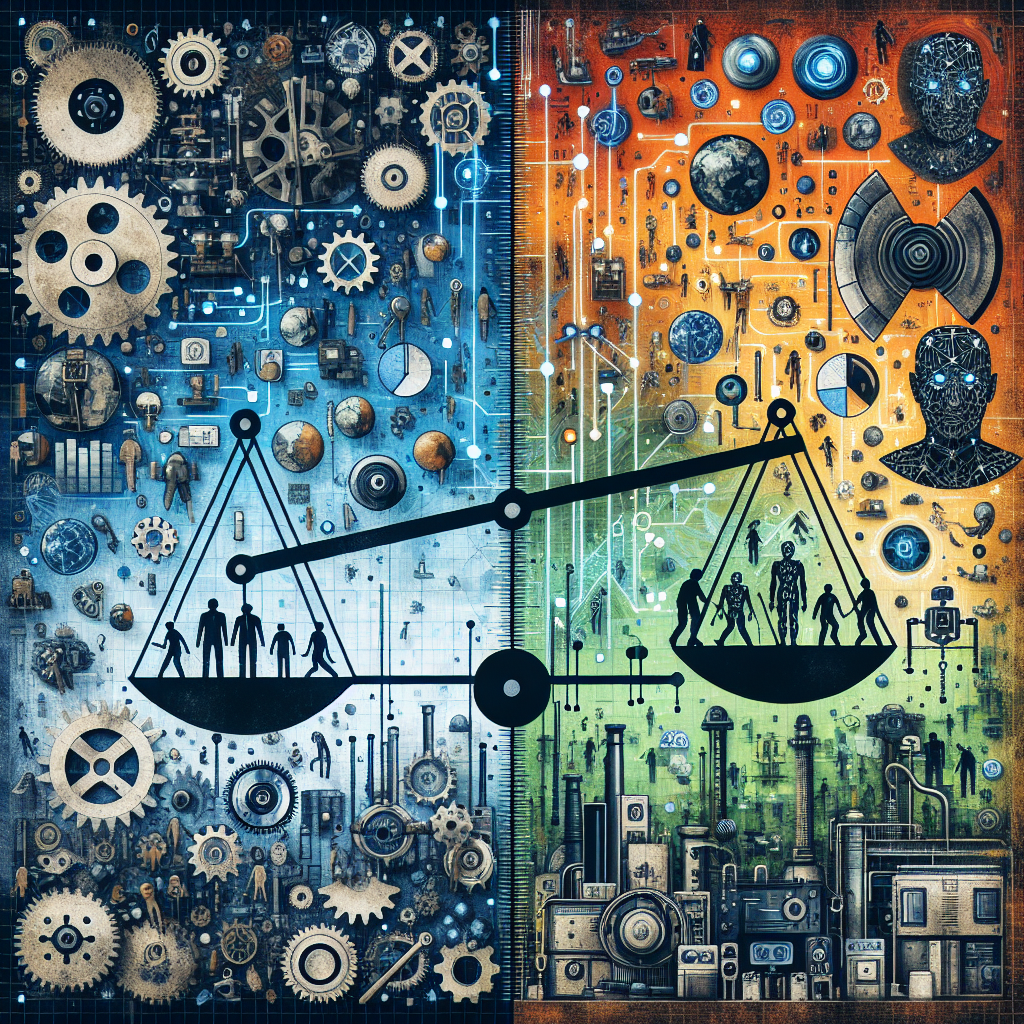Artificial General Intelligence (AGI) is a topic that has been gaining significant attention in recent years. As technology continues to advance at a rapid pace, the potential implications of AGI on the future of work and the economy are becoming increasingly apparent. In this article, we will explore the impact of AGI on jobs and industries, and discuss how automation may shape the workforce of tomorrow.
What is Artificial General Intelligence (AGI)?
Artificial General Intelligence, also known as AGI, refers to a type of artificial intelligence that possesses the ability to understand, learn, and apply knowledge across a wide range of tasks and domains. Unlike narrow AI, which is designed to perform specific tasks within a limited scope, AGI has the potential to exhibit human-like cognitive abilities, such as reasoning, problem-solving, and creativity.
While AGI remains a theoretical concept at this point, researchers and experts in the field of artificial intelligence believe that the development of AGI could have far-reaching implications for society, the economy, and the future of work. As AGI continues to evolve, it is important to consider how automation and AI technologies may impact jobs and industries across various sectors.
How Will Automation Impact Jobs and Industries?
The rise of automation and AI technologies has already begun to reshape the workforce in many industries. As machines and algorithms become increasingly sophisticated and capable of performing complex tasks, the need for human labor in certain roles is expected to diminish. This shift towards automation is likely to have both positive and negative implications for workers and businesses alike.
On the one hand, automation has the potential to increase efficiency, productivity, and profitability in many industries. By automating repetitive and mundane tasks, businesses can reduce costs, improve quality, and accelerate innovation. In sectors such as manufacturing, logistics, and customer service, automation can streamline operations, enhance customer experiences, and drive competitive advantage.
However, the widespread adoption of automation also raises concerns about the displacement of human workers and the potential for job loss. As machines and AI systems become more capable of performing a wide range of tasks, many jobs that are currently performed by humans may become obsolete or redundant. This trend could lead to widespread unemployment, income inequality, and social unrest in the absence of proactive measures to address the impact of automation on the workforce.
In addition to job displacement, automation may also create new opportunities for workers to upskill, reskill, and transition into emerging roles that require human expertise, creativity, and emotional intelligence. As AI technologies continue to evolve, the demand for skills such as data analysis, programming, and critical thinking is expected to grow, creating new pathways for workers to adapt to the changing labor market.
Overall, the impact of automation on jobs and industries is likely to be complex and multifaceted. While automation has the potential to bring significant benefits in terms of efficiency and productivity, it also poses challenges in terms of job displacement, skills gaps, and economic inequality. To navigate these challenges effectively, policymakers, businesses, and individuals must work together to ensure that the benefits of automation are shared equitably and that workers are equipped with the skills and support they need to thrive in the digital economy.
FAQs
Q: Will automation lead to widespread job loss?
A: While automation has the potential to displace certain jobs that involve repetitive and routine tasks, it is also expected to create new opportunities for workers to upskill, reskill, and transition into emerging roles that require human expertise and creativity.
Q: How can workers prepare for the impact of automation on the workforce?
A: Workers can prepare for the impact of automation by acquiring skills that are in high demand in the digital economy, such as data analysis, programming, and critical thinking. By upskilling and reskilling, workers can enhance their employability and adaptability in the face of technological change.
Q: What role should policymakers play in addressing the impact of automation on jobs and industries?
A: Policymakers play a crucial role in shaping the impact of automation on the workforce by implementing policies that support workers, promote innovation, and ensure that the benefits of automation are shared equitably. By investing in education, training, and social safety nets, policymakers can help workers navigate the transition to a more automated economy.
In conclusion, the development of Artificial General Intelligence (AGI) and the rise of automation are expected to have a profound impact on jobs and industries in the coming years. While automation has the potential to bring significant benefits in terms of efficiency and productivity, it also poses challenges in terms of job displacement, skills gaps, and economic inequality. By preparing for the impact of automation and working together to address its implications, we can create a future of work that is inclusive, sustainable, and resilient in the face of technological change.

